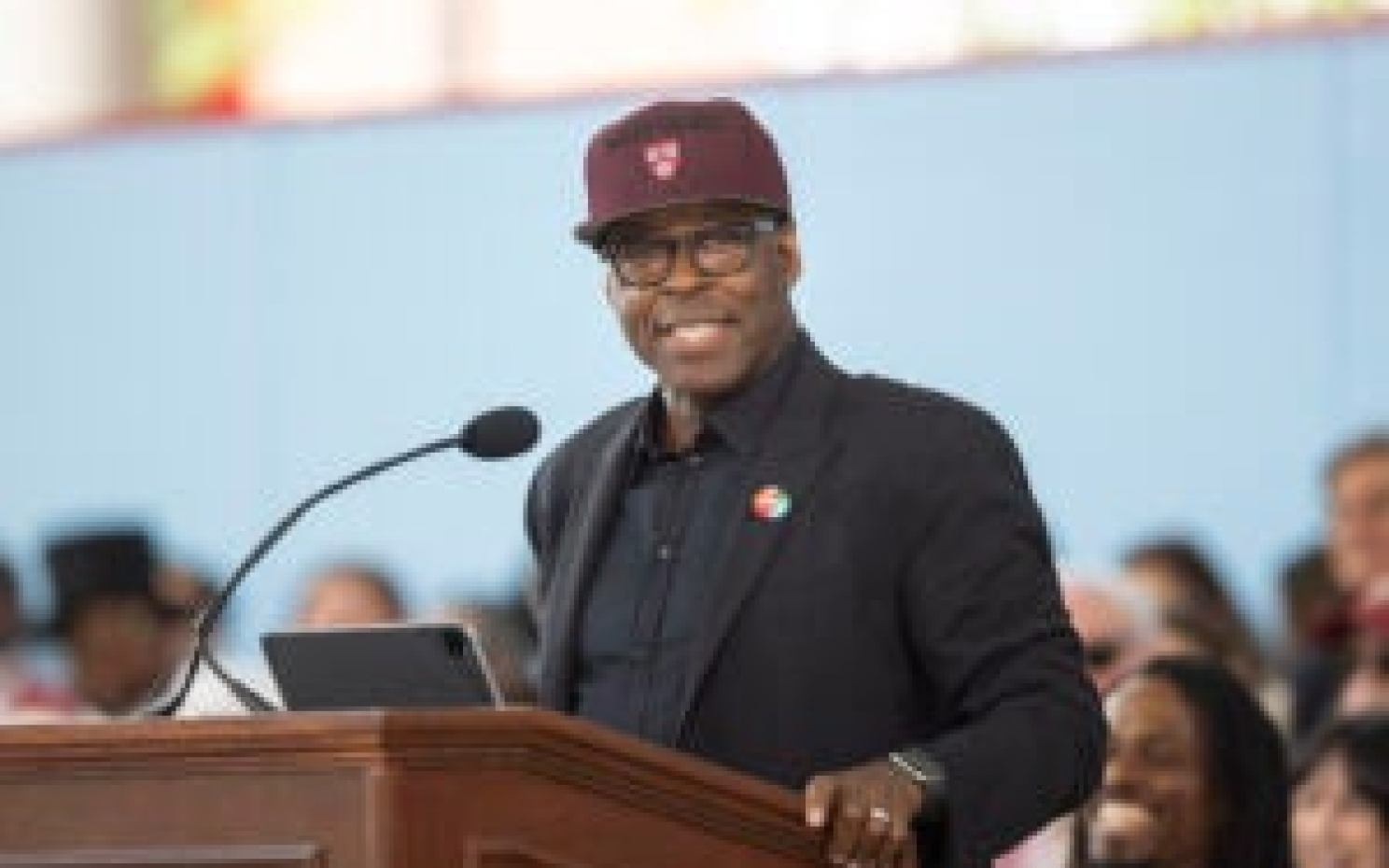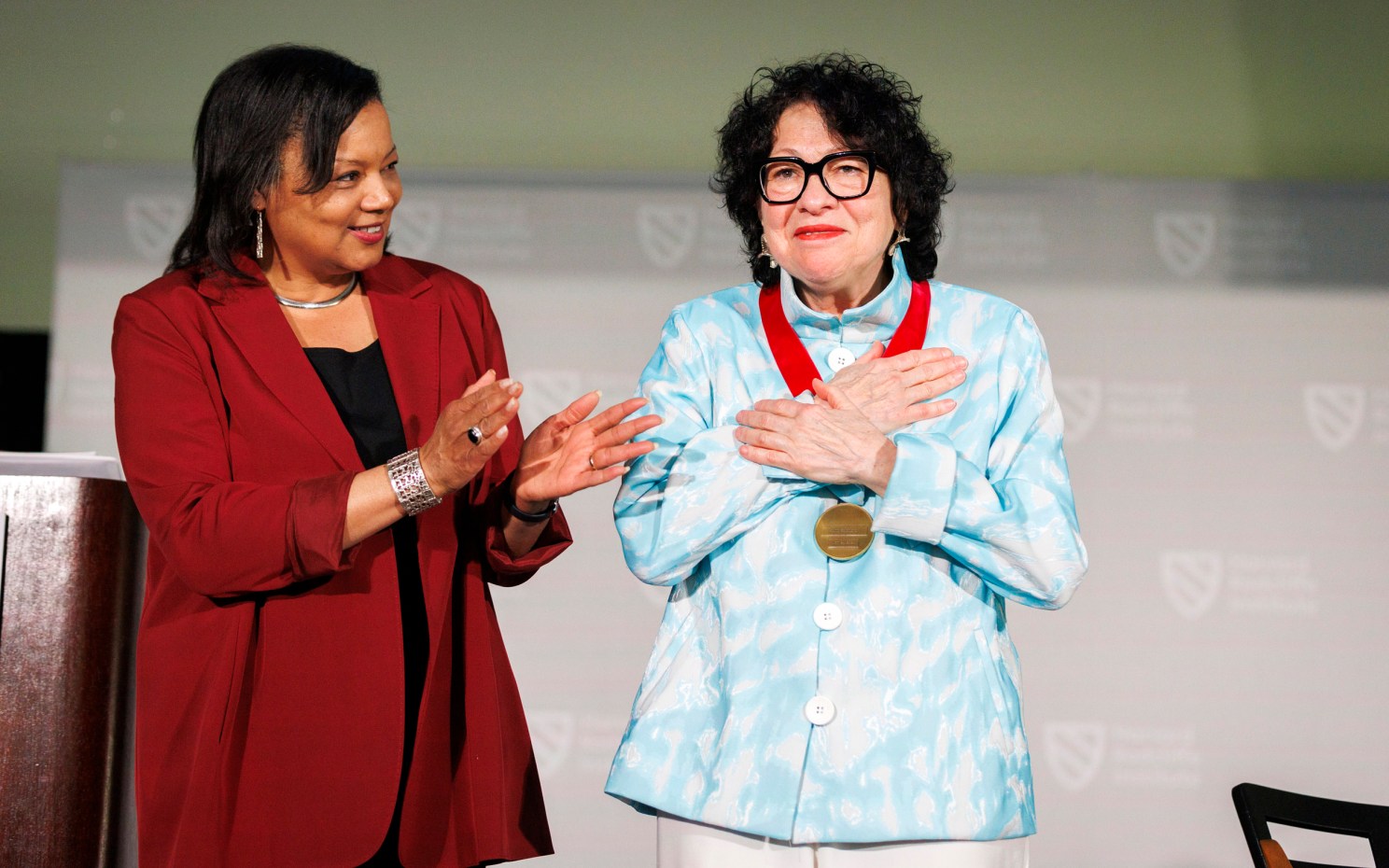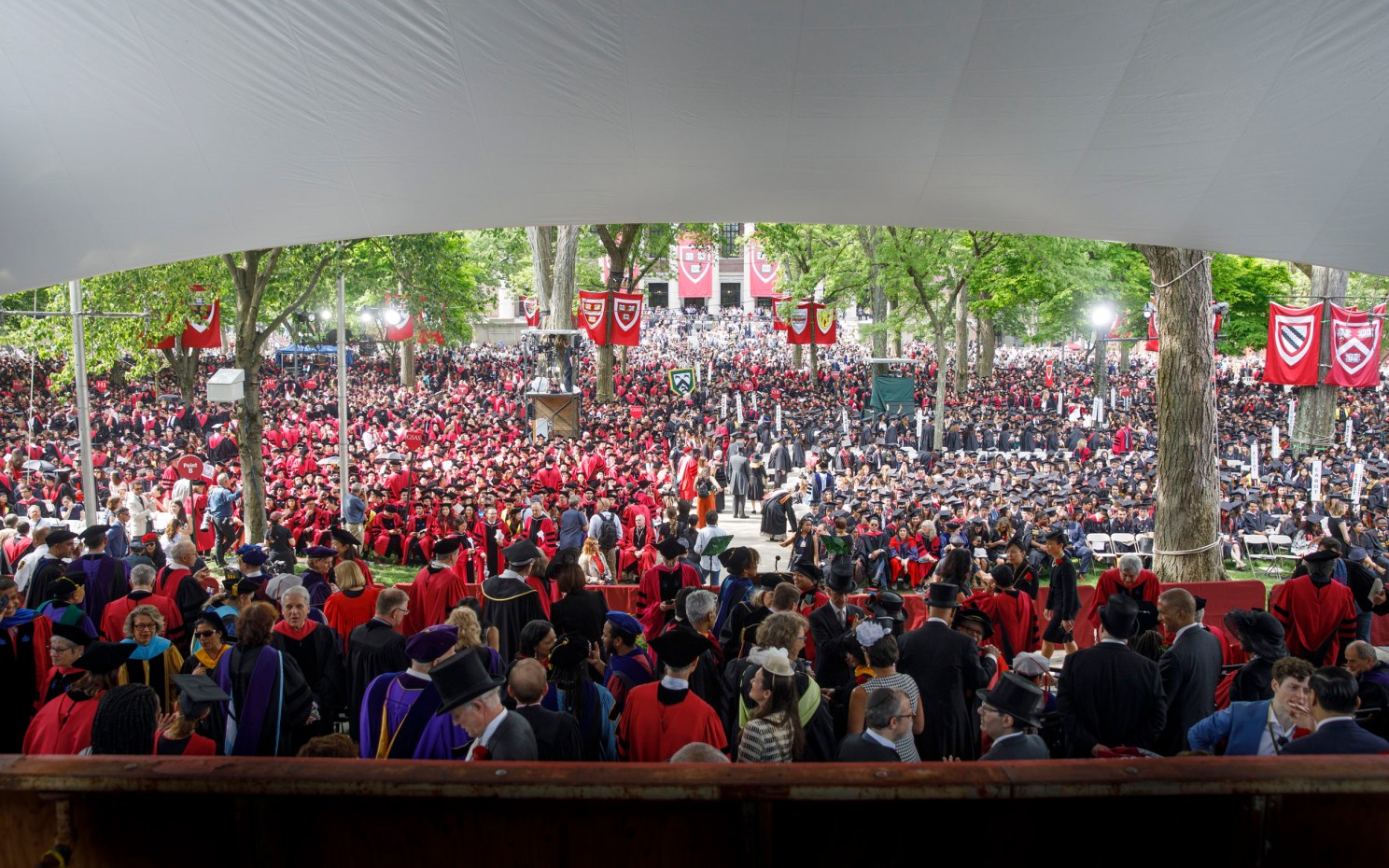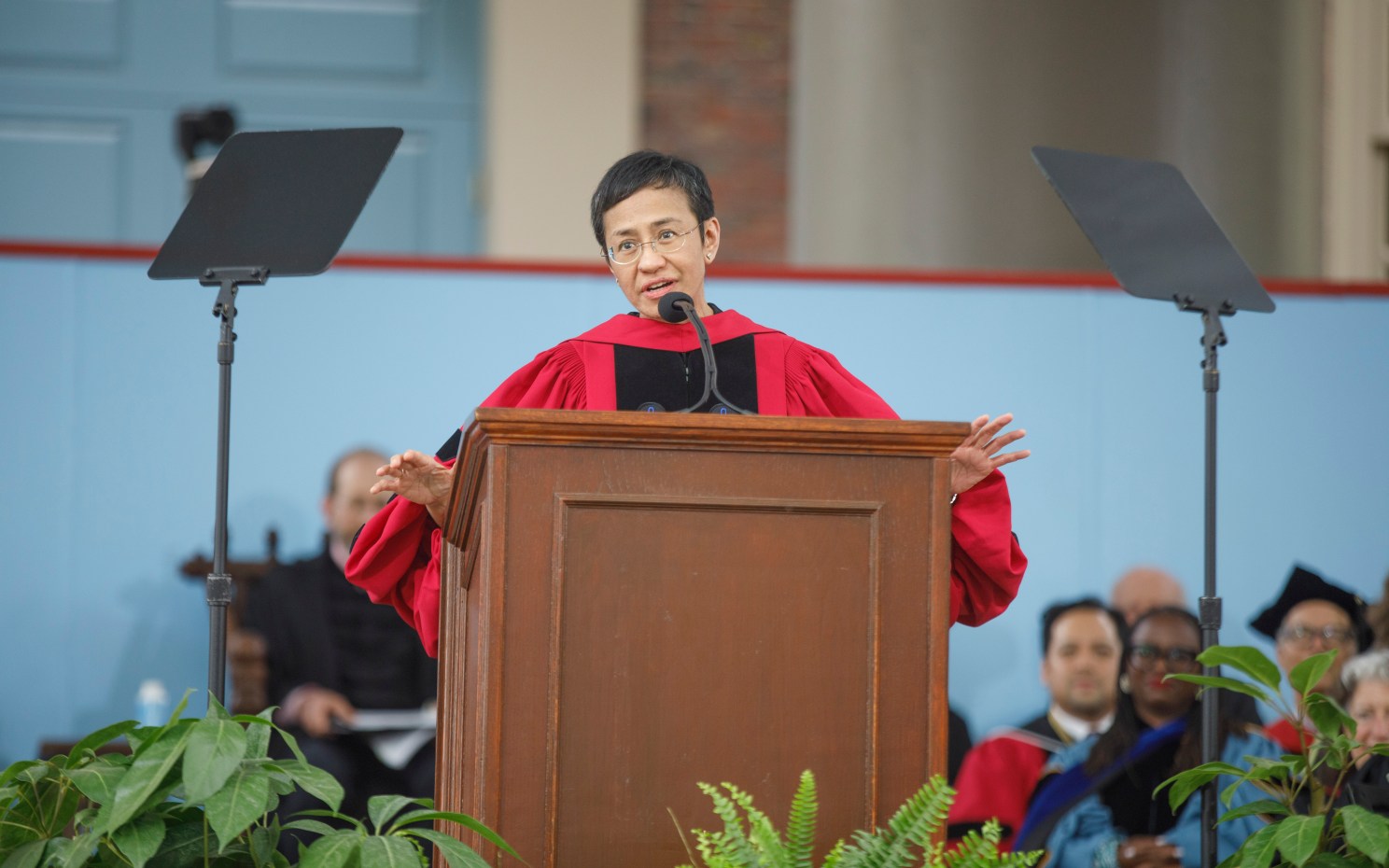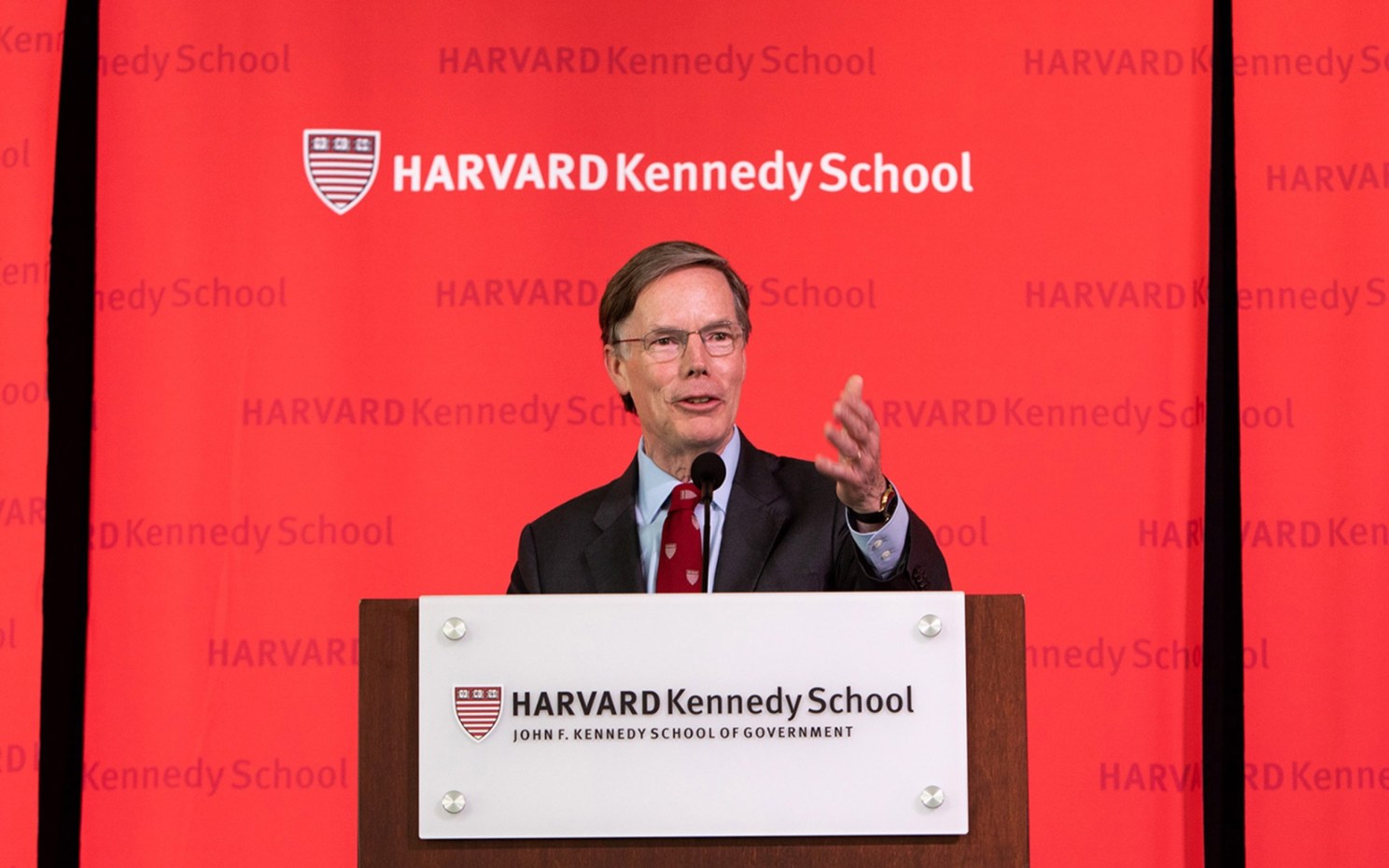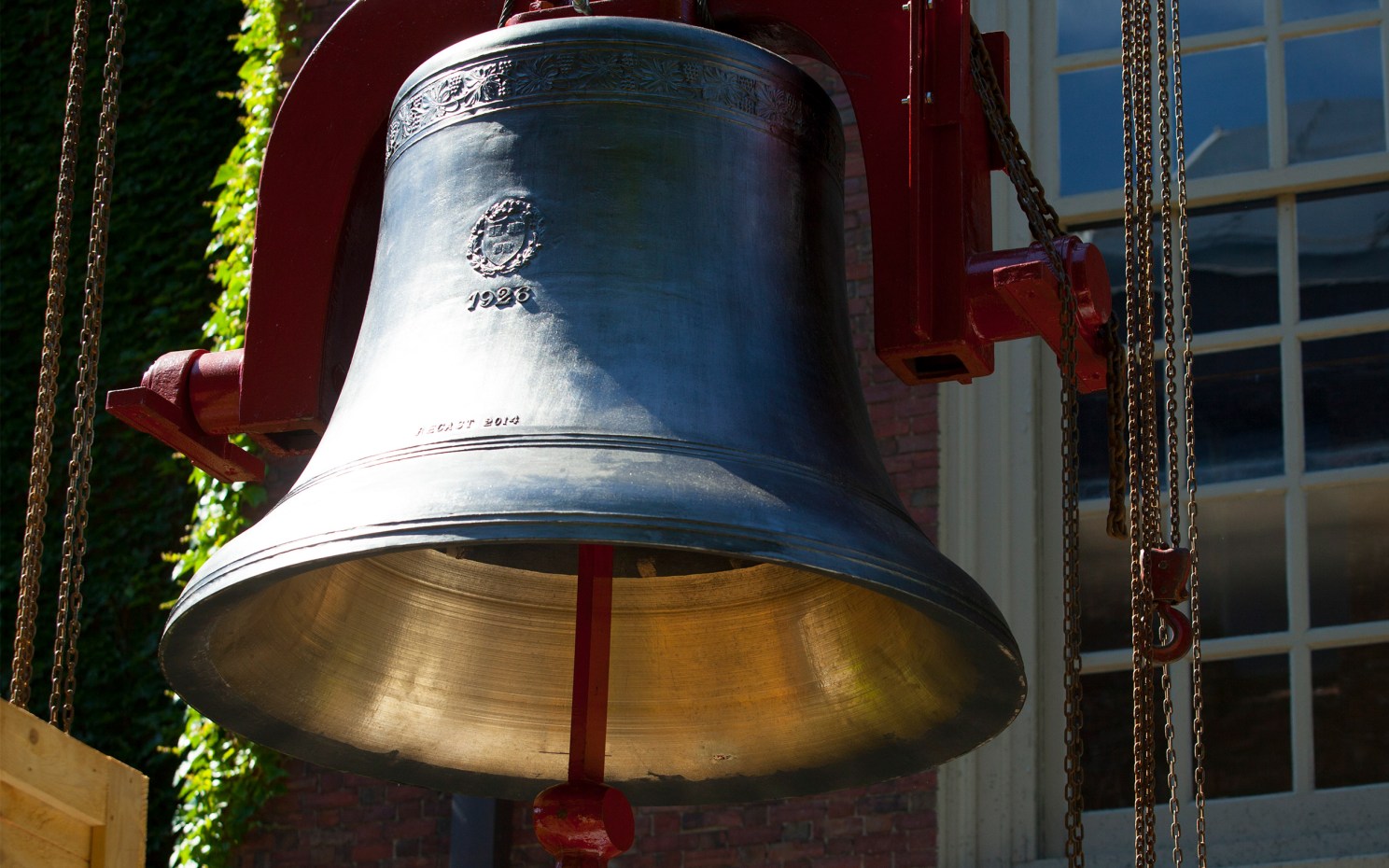When math is the dream
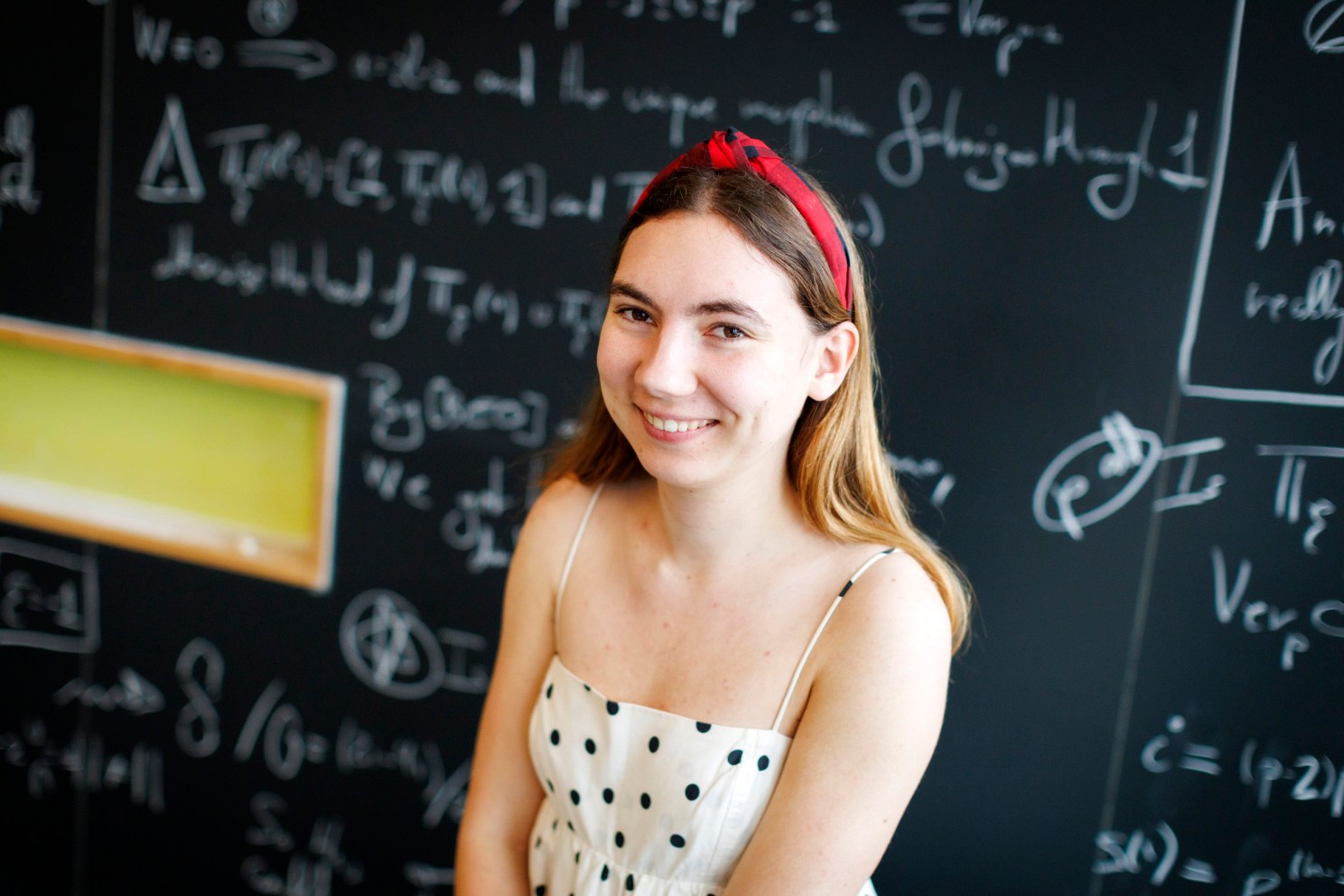
Stephanie Mitchell/Harvard Staff Photographer
Dora Woodruff was drawn to beauty of numbers as child. Next up: Ph.D. at MIT.
Part of the Commencement 2024 series
A collection of stories covering Harvard University’s 373rd Commencement.
For Dora Woodruff, it’s math or bust.
“I don’t really have a backup plan,” said the graduating mathematics concentrator, who was drawn by the beauty and abstraction of numbers from a young age.
Woodruff arrived at Harvard from New York City knowing she wanted to dive deeply into pure mathematics and stretch herself into subfields such as topology, combinatorics, and extremal graph theory. She’s also been able to explore nonmathematical interests, taking courses in literature and linguistics, and playing oboe in the Harvard Bach Society and Harvard College Opera.
Yet it’s through mathematics that Woodruff accesses her most creative side. “To make any kind of progress in math, you have to have original ideas and be inventive,” she said.
Her senior thesis explored “equivariant topology and its combinatorial applications.” As the recipient of the department’s Friends Prize, Woodruff was invited to give a thesis seminar.
“For me, this thesis was an opportunity to read a ton of papers that I wanted to read — and would have had fun reading anyway — and then explain them to someone else,” she said. “It was also a way for me to learn a lot more advanced techniques around topology and do so in a fun way.”
“To make any kind of progress in math, you have to have original ideas and be inventive.”
Woodruff will next pursue a Ph.D. at MIT in algebraic combinatorics, a branch of mathematics that applies methods found in abstract algebra to discrete counting problems. The way she explains it: “The motivation behind algebraic combinatorics is to take problems from other areas, like algebraic geometry, or representation theory, and try to translate them into combinatorial problems, and then use combinatorics to solve them.” She loves the interplay between different ways of thinking about solutions and breaking big problems into more manageable bites.
“One of my favorite ways to solve a problem is to kind of start with small cases, small examples, and see if patterns that I notice generalize,” she said.
Unearthing connections between fields via the common language of combinatorics aligns with Woodruff’s desire to be a public ambassador for math. At Harvard, she has most appreciated moments in which mathematics communities have been “inclusive on purpose”; she’s found most of her professors to be hyper-conscious about creating welcoming environments.
Even so, the lingering effects of mathematics as traditionally male-dominated are pervasive and subtle — so much so that Woodruff suspects many think such problems don’t exist anymore. “Microaggressions are definitely a thing,” she said. She recalls well-meaning distant family members who, upon finding out she was interested in math, assumed she wanted to teach elementary school math.
Among her efforts to promote equity in the mathematics community, Woodruff served as co-president of Harvard Undergraduate Gender Inclusivity in Mathematics. The group has hosted events from department town halls to seminars about research experience opportunities for undergraduates.
Woodruff herself participated in multiple undergraduate research projects over three summers at different institutions, resulting in co-authorship on three research papers now under review.
She also served on the department’s Community Committee, launched by Michael Hopkins, Math Department chair and George Putnam Professor of Pure and Applied Mathematics. The goal was to address longstanding culture issues within the department.
“[Dora] was extremely insightful about things we might need to do to change,” said Hopkins, who was also her thesis adviser. He was impressed by the leadership roles Woodruff took on atop her challenging coursework and teaching. “Brilliant, humble, gracious, and inclusive” was how he described her.
Woodruff worked as a course assistant for Math 55, a first-year honors course in algebra and analysis with a reputation for being extremely difficult. “I think the legendary status is maybe a little bit overhyped,” said Woodruff. “I think anyone with a proof-based background and a real desire to spend a lot of time on math can do well in the class. And honestly, I feel like I’ve taken classes that were a little bit crazier.”
Woodruff has been a course assistant nearly every semester — in ring theory, algebraic topology, and others. Revisiting material as a teacher has helped her nail down concepts in her own head. “Having to explain it to other people in a clear way helps me clarify it for myself, too,” she said.
After her four years at Harvard, Woodruff found that her conception of being “good at math” has evolved.
“I think I’ve gotten better at not getting discouraged when I don’t immediately get something,” she said. “I think building up resilience is important. As a mathematician, especially when you’re doing research, a lot of being ‘good’ at math is not giving up on a really hard problem and being willing to think about the same thing over and over again for many days. It’s just really loving it. I think those are qualities I have.”



